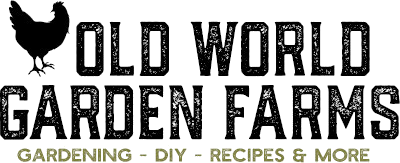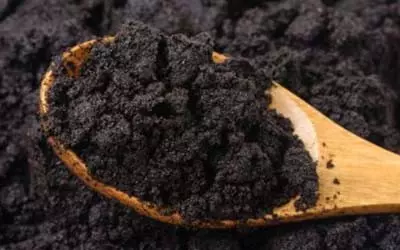The end of April is here, and with Spring in full force, it’s time to start thinking about planting the garden. I’m not talking about planting the early seed crops that get us out into the garden for the first time in months.
I’m talking about Planting The Garden – Big Time! And that means transplanting those summer-loving, big tasting, high-producing crops like tomatoes, cucumbers, peppers, and other veggies into the garden.
I honestly can’t think of a more exciting time for a vegetable gardening fanatic than planting day!
Getting your vegetable plants off to a great start plays a major role in a successful harvest.
And by following just a few simple steps on planting day, you can make sure your garden will grow and flourish all year long.
Here are 3 of our favorite tips when it comes to successfully planting the garden.
Planting The Garden – 3 Tips To Success
#1 Don’t Rush The Big Day
One of the biggest mistakes people make is to rush planting day. When it comes to vegetable transplants, timing is everything.
The soil needs to be warm, and the threat of frost needs to be past. If not, your plants can sit in cold soil and even worse, be damaged or destroyed by a late spring frost or freeze.
When plants sit around in cold, damp conditions, bad things happen. Their growth can be permanently stunted, and their roots and stems can rot in the soil.
Yes, I know all of the nurseries and stores have those plants inside and looking all ready to go.
The key – they are still inside! So pick them up now while the selection is good, but don’t put them into the ground just yet.
#2 Feed Your Plants
When it is time to transplant your vegetable plants in the ground, give them the perfect home!
The planting hole you create for each plant will be their new home for the next 3 months or so, so fill it with food and make it a great one!
We start by creating all of our planting holes with a post hole digger. It quickly makes a beautiful, extra wide hole that is a good 8 to 10” deep.
That loosens the soil in a large space around the transplants going into the ground, allowing them a lot of space to quickly expand their roots.
And then we fill that hole back in with plant loving food! We mix in an equal amount of compost with the soil that came out of the hole.
Then we add in a few crushed egg shells, a tablespoon of coffee grounds, and a couple of tablespoons of worm castings.
Then we use that to fill back in around the transplant. The nutrient filled soil mix provides an incredible source of food as the plants begin to grow.
The worm castings have simply been an amazing additive to our plantings. They work wonders in fertilizing plants naturally.
See : Planting With A Post Hole Digger and Why Egg Shells and Coffee Grounds Are Great For The Garden
Product Links : Worm Castings, Bagged Compost
#3 – Mulch Those Plants!
I can’t stress enough how much mulching helps your plants! It is critical.
First and foremost, it keeps out competing weeds. And those weeds, if present, steal all of the valuable nutrients from the soil, and leave your plants hungry.
Mulching also insulates the root zone of plants. This keeps the plants from overheating on hot days, and can keep them warmer if a cold snap hits.
And, if you mulch directly around your plants with a little compost, it can feed your plants too!
We use a 1″ to 2″ thick mulching of compost about 8″ in diameter around each plant.
We then cover the rest of the area in straw, leaving no dirt at all exposed in our growing rows. No exposed soil – no weeds!
And by using the compost, every time we water or it rains, the nutrients leach into the soil, helping to feed our plants all summer long.
There you have it, our top 3 planting day tips. Here is to a great 2017 garden!
Happy Gardening, Jim and Mary.
We hope you enjoyed this week’s gardening article! If you would like to receive our DIY, Gardening and Recipe articles each week, you can sign up to follow the blog via email in the right hand column above, “Like” us on Facebook, or follow us on Twitter. This article may contain affiliate links.


